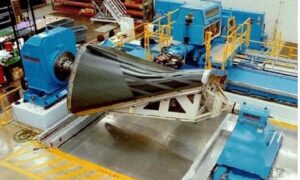In the rapidly evolving construction industry, advanced technologies are revolutionizing traditional practices, enabling companies to achieve unprecedented levels of efficiency and precision. One such innovation is Reality Capture, a cutting-edge technology transforming the way construction projects are planned, executed, and monitored. As such, the primary focus of this article is to explore the transformative potential of advanced technologies in the construction sector.
1. Enhancing Project Planning with Building Information Modeling (BIM)
Building Information Modeling (BIM) is a collaborative process that integrates various aspects of a construction project into a single, coherent system. By providing a digital representation of the physical and functional characteristics of a facility, BIM allows stakeholders to visualize the entire project lifecycle from design to demolition. This technology not only improves accuracy and reduces errors but also enhances collaboration among project teams, leading to better decision-making and streamlined project execution.
2. Improving On-site Efficiency with Drones
Drones are becoming indispensable tools in the construction industry, offering unparalleled capabilities for site inspection, surveying, and monitoring. Equipped with high-resolution cameras and advanced sensors, drones can quickly and accurately capture aerial images and data from construction sites. This information can be used to create detailed maps, monitor progress, and identify potential issues before they become costly problems. By providing real-time insights, drones help construction managers make informed decisions, optimize resources, and enhance overall project efficiency.
3. Increasing Safety with Wearable Technology
Safety is a paramount concern in the construction industry, and wearable technology is playing a crucial role in ensuring the well-being of workers. Wearable devices, such as smart helmets, vests, and goggles, are equipped with sensors that monitor various health and safety parameters, including heart rate, body temperature, and exposure to hazardous substances. These devices can alert workers and supervisors to potential dangers, enabling timely interventions and preventing accidents. Additionally, wearables can track worker movements and provide valuable data for optimizing workflows and reducing risks.
4. Streamlining Communication with Mobile Technology
Effective communication is vital for the successful execution of construction projects, and mobile technology is making it easier for teams to stay connected. Smartphones and tablets, coupled with construction-specific apps, allow workers to access project information, share updates, and collaborate in real time, regardless of their location. This seamless communication enhances coordination, reduces delays, and ensures that everyone is on the same page. Mobile technology also facilitates remote management, enabling supervisors to oversee multiple projects from a central location.
5. Optimizing Resource Management with Artificial Intelligence (AI)
Artificial Intelligence (AI) is transforming resource management in the construction industry by providing predictive analytics and intelligent automation. AI algorithms can analyze vast amounts of data to forecast project timelines, identify potential delays, and optimize resource allocation. For instance, AI-powered software can predict equipment maintenance needs, preventing costly breakdowns and downtime. Moreover, AI can assist in material procurement by predicting demand and optimizing inventory levels, ensuring that the right materials are available when needed.
6. Boosting Sustainability with Green Construction Technologies
Sustainability is increasingly becoming a priority in the construction industry, and advanced technologies are playing a pivotal role in promoting eco-friendly practices. Green construction technologies, such as energy-efficient building materials, renewable energy systems, and waste reduction strategies, are helping companies minimize their environmental impact. Innovations like modular construction and 3D printing are also contributing to sustainability by reducing material waste and shortening construction timelines. By embracing green technologies, construction companies can enhance their reputation, comply with regulations, and meet the growing demand for sustainable buildings.
Conclusion
Advanced technologies are reshaping the construction industry, offering new opportunities for companies to enhance efficiency, improve safety, and achieve sustainability. By leveraging innovations such as Building Information Modeling, drones, wearable technology, mobile communication tools, Artificial Intelligence, and green construction technologies, construction firms can stay ahead of the curve and thrive in a competitive market. Embracing these technologies not only drives operational excellence but also positions companies as leaders in the industry, capable of delivering high-quality projects that meet the demands of the modern world.
Read More From Techbullion And Businesnewswire.com



































